LISBON — The seedlings filled the high tunnel at the Packard-Littlefield farm, hardening off on what was yet another chilly May day in a succession of spring days seemingly designed to give farmers fits. They were ready to be planted and the quartet of farmers who had nursed them from seed in an adjacent, heated greenhouse, were more than ready to get them in the ground.
But more rain was coming and that would mean another delay in plowing the fields at the ultimate destination for these seedlings, New Roots Cooperative Farm, some 10 miles to the northwest. The farmers had to be getting impatient. Right?
Batula Ismail laughed when Omar Hassan translated the question, with its obvious answer, to her.
“That is not a lie,” she responded through Hassan. “You are saying the truth.”
You would be hard-pressed to find a farmer in Maine who hadn’t found this May, last week’s warmth notwithstanding, to be something of a disappointment. But Ismail and the three other Somali Bantu farmers she’s working with are perhaps particularly anxious to get to work in the fields. That’s because, for the first time since they arrived in America more than 10 years ago, at New Roots Cooperative Farm they’ll be owner-operators, rather than guests on someone else’s land.
New Roots Cooperative Farm is a joint venture by Ismail, Jabril Abdi, Seynab Ali and Mohammed Abukar, as well as several nonprofits that worked on their behalf, including the Cooperative Development Institute, which Hassan works for, providing marketing assistance. The Somali-born farmers have all been nurtured by and are graduates of Cultivating Community’s farmer training program.
Maine Farmland Trust bought the land for the farm, 30 acres of an old dairy farm on College Street in Lewiston, and entered into a lease-to-own relationship with the farmers, with Land for Good assisting in the negotiation process. The plan is that eventually, they’ll buy the farm outright from Maine Farmland Trust, the Belfast-based group that helps conserve farmland throughout Maine and pairs farmers with available land.
In the meantime, there are crops to plant. And Seynab Ali, who is the president of the cooperative, can’t wait to get started. She gestures over dozens, no, hundreds of bright green flats at the Packard-Littlefield farm, Cultivating Community’s “incubator” farm, where she was a farmer in training for nearly a decade. These are not just the so-called “ethnic” crops (i.e., the kinds of greens and vegetables that some new American farmers specialize in). The New Roots farmers do intend to grow a few of those ethnic crops, like hard, African-style corn and some African squash, Ali explained through Hassan. But things like chard and kale? “This is all new to me,” she said.
They’re growing for the American market, Hassan explained, not for new Mainers, but for all Mainers. That’s a good business decision for a group that wants to sell beyond just to their own community.
Like every farmer, they want to make it. And like every Maine farmer, they face a common enemy.
“Weeds!” Ali said, laughing. Weeds, she said, were not a problem in Somalia.
GOOD WITH THE BAD
New Roots represents a milestone for Cultivating Community’s entire New American Sustainable Agriculture Program, fledging farmers going out on their own. Fledgling is probably the wrong term, since all four of the New Roots farmers had plenty of farming experience before they escaped civil strife and horrific violence in Somalia. New Roots will be the first Maine farm owned by new Americans.
But with the good comes the bad, or at the very least, a reminder of the challenges of farming on borrowed land. As Ali, Ismail and New Roots farm manager Jabril Abdi checked on the progress of the seedlings, Alex Redfield, the farm manager at Packard-Littlefield, had just gotten some bad news.
The Packard-Littlefield farm, which has been these farmers’ home away from home, had just gone on the market for $2.7 million. It’s a nearly 500-acre property, and the Cultivating Community group operates on a small, leased portion of it, thanks to an agreement (and agricultural easement) with owners Ella Mae Littlefield Packard and Robert Packard. They’re farmers too, and have maintained the four-bedroom house and barn through many decades (the farm belonged to Ella Mae’s family). But they’re in their 70s, and their real estate agent, Roger Gagnon, said they were ready to make a change.
“Their goal is to kick back and enjoy life now,” Gagnon said. “It has nothing to do with the property or what has been going on with the property. It’s just time to close that chapter and open a new one.”
Redfield said Cultivating Community still has two years on their lease at Packard-Littlefield, so there is no imminent danger of the new American farmers being displaced. But Gagnon said his understanding is that a new owner could change the lease to just one year.
Much of the land is in conservation and couldn’t be developed, Gagnon said. It does have potential for extensive wood harvesting (350 acres are wooded) and for a “handful” of single-family homes. “Everything is set up for someone to be organic, self-sustaining farming.”
Lesley Heiser, who is Cultivating Community’s development leader as well as its communications director, said the hope is that any new owners would value the immigrant program in place on Packard-Littlefield, which is in rapid growth mode.
In 2016, the Lisbon farm served as the home base for 30 new American “gardeners” (they’re growing for themselves and their families, but not for market) and for 22 farmers in training. The total number of participants in the program, which includes sites like the Tidewater Farm in Falmouth and Libbytown Community Gardens in Portland, was 96. In 2015, 43 gardeners and farmers in training participated.
But whatever happens, they’ll keep moving forward. Cultivating Community is in negotiations, which look hopeful, to lease Hurricane Valley Farm in West Falmouth from the Falmouth Land Trust, with hopes to dedicate the 62-acre site to sustainable agriculture. It would be a convenient site for the Portland-based immigrant community that wants to access land (and also, Heiser said, for the goat farming the community is eager to get into to meet unmet area demand for halal goat meat). And regardless what happens at Packard Littlefield, she said, “Cultivating Community is all about resilience.”
They look to what the farmers they work with have gone through, leaving their native lands, adjusting to a new country, helping their families adjust (Batula Ismail is a single mother to nine) trying to find work or in this case, start their own businesses.
“We are used to curve balls,” Heiser said.
HAPPILY, STILL A FARM
Part of the reason for the delay on plowing and planting is that though New Roots is located on agricultural land, it’s a former dairy that was never cultivated for vegetable production. The Gendron family, which owned Gendron Farm for almost the entire 20th century, kept cows and cut hay.
They too came from away, Quebec specifically. Monique Gendron, the seventh of eight children born to the former owners, Arthur Gendron and his wife, Blanche, said she believed her grandfather bought the land, which included a gravel pit and possibly a rudimentary cabin, in 1901. The dairy farm was established in 1909, she said. Arthur was the youngest of 13 children, and he inherited the farm when his father died in 1941.
The Gendron family held onto the original farmhouse when the land was divided up for sale in 2009. Central Maine Power bought some of the land, Lewiston’s Stanton Bird Club bought acreage for a bird sanctuary and in 2015, Maine Farmland Trust came calling.
Monique Gendron remembers the farm as a busy place. She and her siblings helped their father on his delivery route and with the milking and haying. “I remember being on the tractor at age 9 with my dad,” she said.
Her mother made butter, which the family also sold, and ice cream – mostly chocolate and vanilla – but that was just for family.
“The family always came first,” she said. “They were good providers.”
Her father was “very, very hard-working, honest, generous. Mom, she was the quieter one. She was very kind, very giving. She was always busy.”
The couple ran the farm together until she became ill in 1995. The next year Arthur Gendron sold their 72 head of Holstein.
“He just couldn’t keep it up anymore,” Gendron said.
She drives by New Roots every week on her way to visit her brother, who lives in the old farmhouse, although she hadn’t been over since a break in the clouds allowed Alex Redfield to finally plow most of the 10 acres the New Roots farmers plan to cultivate this year. Like them, Gendron is eager to see planting commence and the New Roots becoming a working farm again.
“I am so excited by it because I know my dad really wanted to keep it as farmland,” Gendron said. “He never wanted to sell his fields. Even when he got sick himself, he was not willing to sell.”
Her father, who lived to be 90 still loving those fields, would be happy to see them freshly plowed now, she said. “He would just be too excited,” she said.
Mary Pols can be contacted at 791-6456 or at:
Twitter: MaryPols
Send questions/comments to the editors.


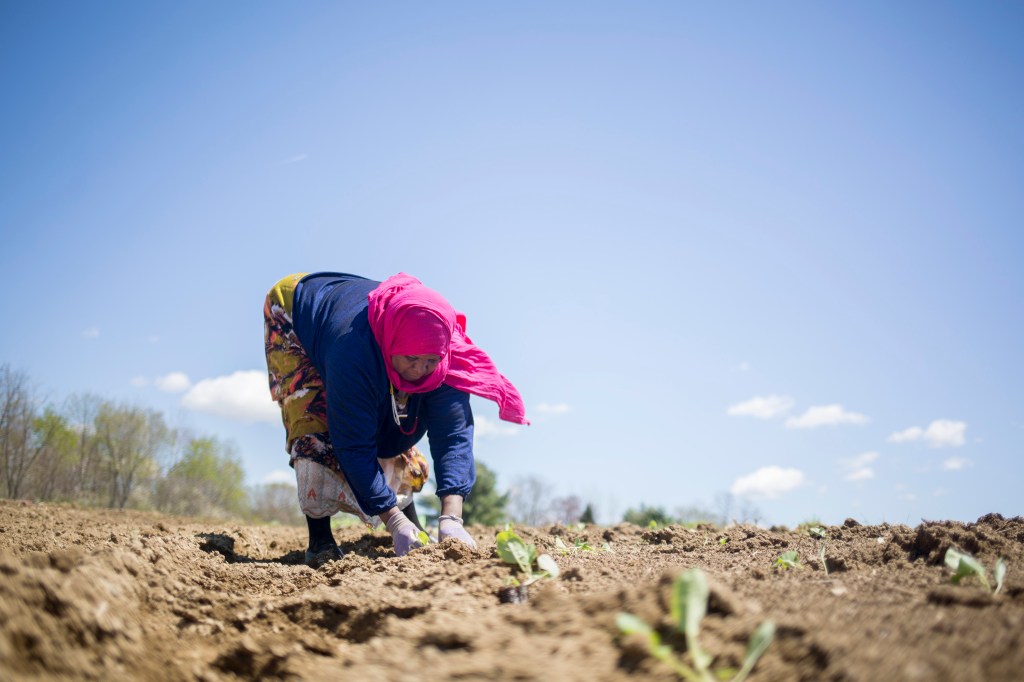
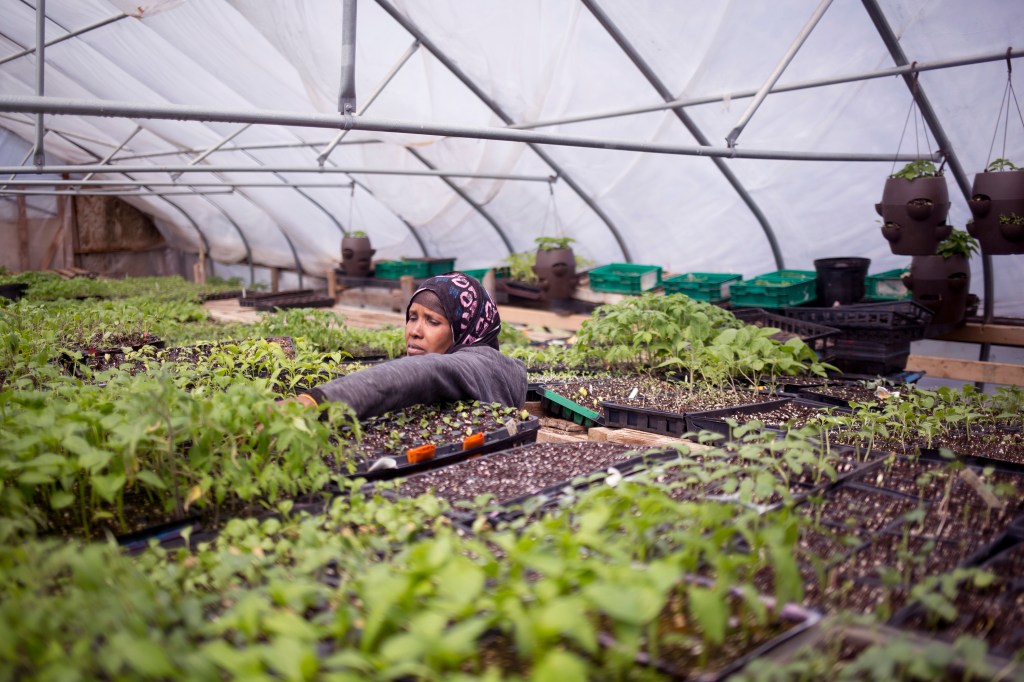
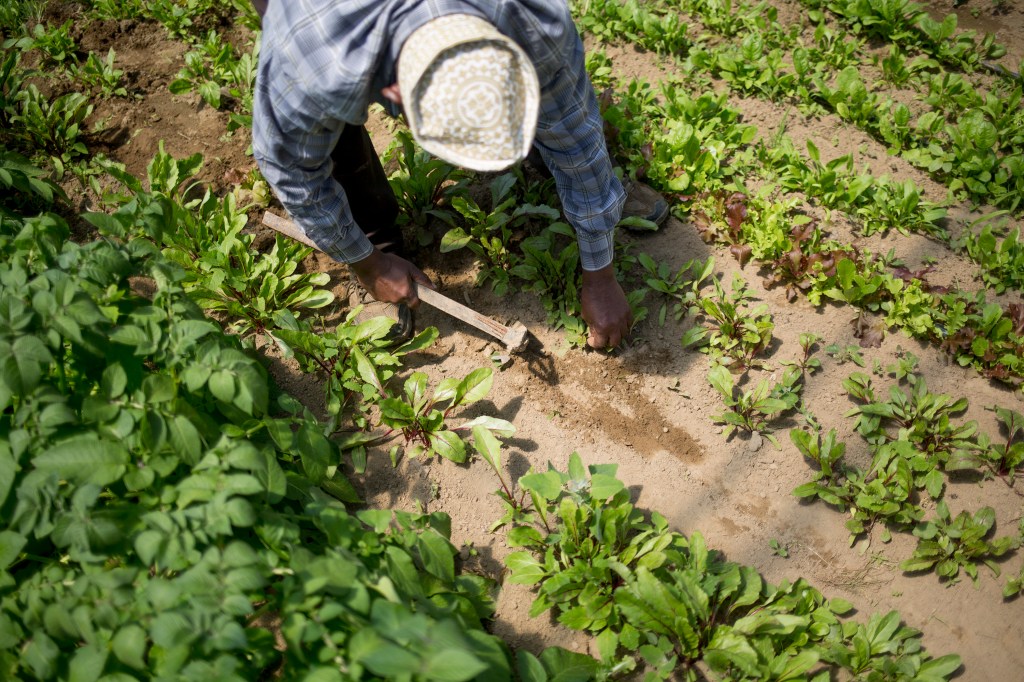



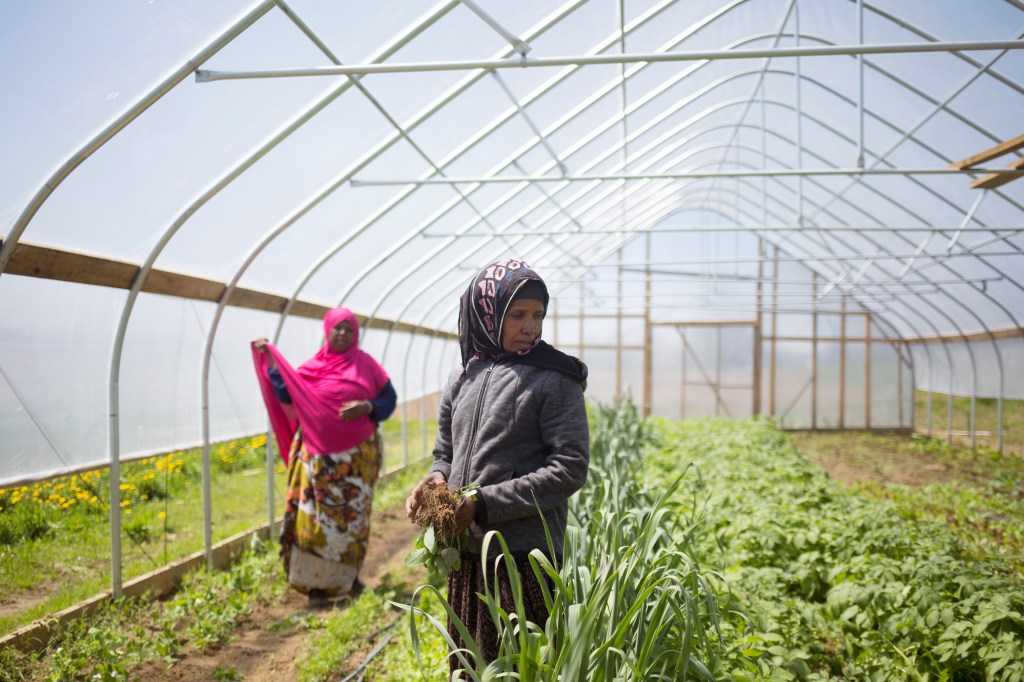

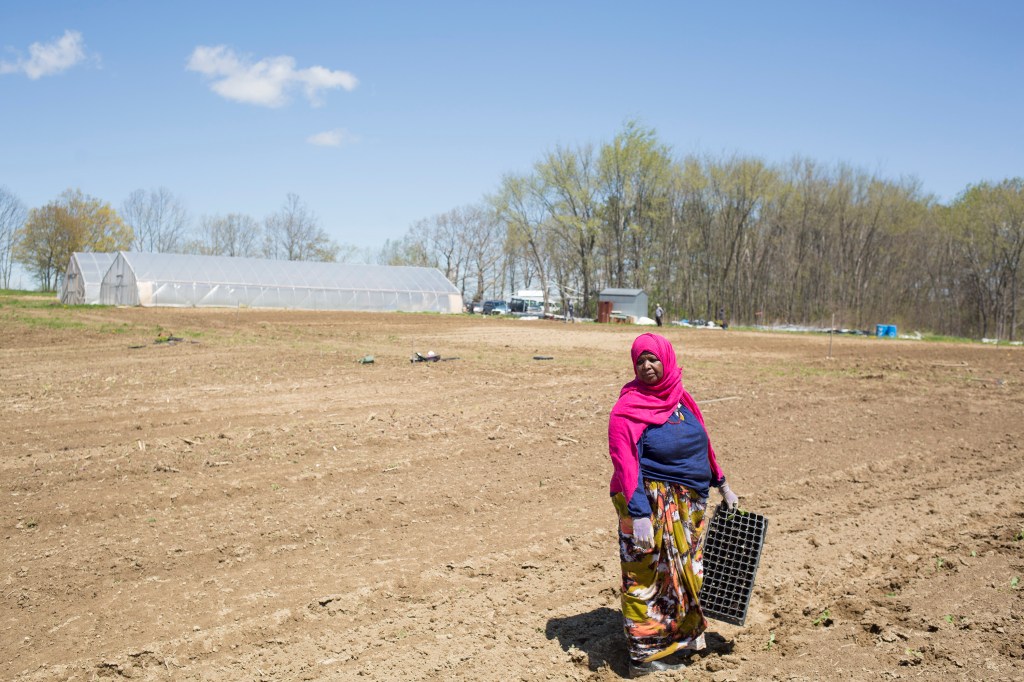

Comments are no longer available on this story